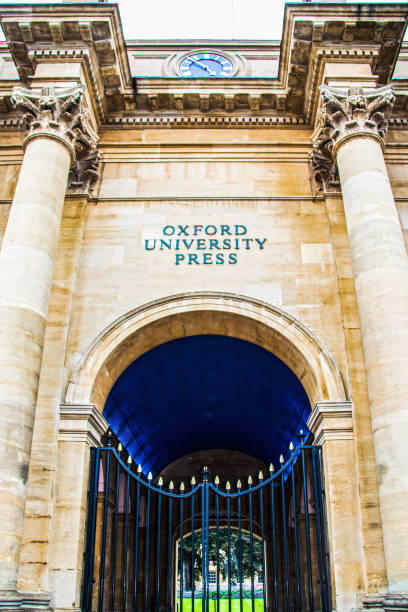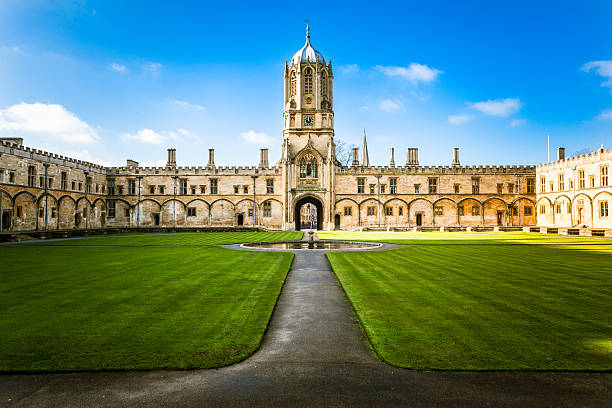University of Oxford: A Timeless Beacon of Academic Excellence
Introduction

Nestled in the historic city of Oxford, the University of Oxford stands as a timeless symbol of academic prestige and intellectual inquiry. Established in the 12th century, Oxford is the oldest university in the English-speaking world and has maintained its reputation as one of the most esteemed institutions of higher learning globally.
Renowned for its rich tradition of scholarship, eminent faculty, and picturesque surroundings, Oxford continues to inspire generations of scholars, leaders, and innovators.
A Legacy of Excellence
The University of Oxford boasts a storied history that spans over eight centuries, characterized by a legacy of academic excellence and intellectual achievement. From its humble beginnings as a collection of medieval teaching halls to its present-day status as a world-class research university, Oxford has played a pivotal role in shaping the landscape of higher education.
Its alumni include luminaries such as Sir Isaac Newton, Albert Einstein, and Stephen Hawking, whose contributions to science and humanity have left an indelible mark on the world.
Academic Distinction
At the heart of Oxford’s academic ethos is a commitment to fostering intellectual curiosity, critical thinking, and scholarly inquiry. With over 100 academic departments, faculties, and research centers, Oxford offers a diverse array of disciplines spanning the arts, humanities, sciences, social sciences, and professional fields. The university’s rigorous academic programs, distinguished faculty, and vibrant intellectual community provide students with a transformative educational experience that prepares them for leadership roles in academia, industry, and society.
Collegiate System
Central to Oxford’s unique educational structure is its collegiate system, which comprises 39 autonomous colleges and six permanent private halls. Each college serves as a self-governing community of scholars, providing students with personalized academic support, pastoral care, and extracurricular opportunities. The collegiate system fosters a sense of belonging and camaraderie among students, who benefit from the intimate learning environment and interdisciplinary exchange of ideas within their respective colleges.
Research Excellence
Oxford is renowned for its pioneering research across a wide range of disciplines, from cutting-edge scientific discoveries to groundbreaking insights in the humanities and social sciences. The university’s world-class research facilities, state-of-the-art laboratories, and collaborative research centers attract scholars from around the globe who are at the forefront of their fields.
Whether unraveling the mysteries of the universe, advancing medical breakthroughs, or addressing global challenges such as climate change and inequality, Oxford’s research endeavors continue to push the boundaries of knowledge and innovation.
Cultural and Social Enrichment
Beyond its academic pursuits, Oxford offers a rich tapestry of cultural, social, and extracurricular activities that enrich the student experience. From literary societies and theatrical productions to sports clubs and community outreach initiatives, there are countless opportunities for students to pursue their passions, develop new skills, and forge lifelong friendships.
The city of Oxford itself, with its iconic architecture, world-renowned museums, and vibrant cultural scene, provides an inspiring backdrop for intellectual exploration and personal growth.
How much does Oxford cost?

The cost of attending the University of Oxford can vary depending on several factors, including the specific course of study, the student’s nationality or residency status, and their individual lifestyle choices. Here’s a breakdown of the typical costs associated with studying at Oxford:
- Tuition Fees: The tuition fees for undergraduate and postgraduate programs at Oxford vary depending on the course and whether the student is a UK/EU student or an international student. As of my last update, UK/EU undergraduate students typically pay tuition fees capped by the UK government, while international students may face higher fees. For postgraduate programs, tuition fees vary widely depending on the discipline and level of study.
- College Fees: Oxford operates a collegiate system, and students are members of both the university and one of its constituent colleges. College fees cover accommodation, meals, and various facilities and services provided by the college. These fees can vary significantly between colleges.
- Living Expenses: In addition to tuition and college fees, students need to budget for living expenses such as accommodation (if not covered by college fees), food, transportation, books, study materials, and personal expenses. The cost of living in Oxford can be relatively high compared to other parts of the UK.
- Additional Costs: Depending on the course of study, there may be additional costs such as laboratory fees, field trips, study abroad programs, and extracurricular activities.
It’s essential for prospective students to consult the University of Oxford’s official website or contact the admissions office for the most up-to-date information on tuition fees, college fees, and living expenses. Additionally, students should explore available scholarships, bursaries, and financial aid options to help offset the cost of studying at Oxford.
Does Oxford have scholarships?

Yes, the University of Oxford offers a variety of scholarships, grants, and funding opportunities to support undergraduate and postgraduate students. These scholarships are available to both UK/EU students and international students and are awarded based on academic merit, financial need, and other criteria. Here are some of the main types of scholarships available at Oxford:
- Oxford University Scholarships: Oxford offers a range of scholarships and awards funded by the university itself. These scholarships may cover tuition fees, living expenses, or both, and are available for both undergraduate and postgraduate students across various disciplines.
- Clarendon Scholarships: Clarendon Scholarships are prestigious graduate scholarships offered to outstanding students from around the world. These scholarships cover tuition and college fees as well as a generous stipend for living expenses.
- Rhodes Scholarships: The Rhodes Scholarship is one of the oldest and most prestigious international scholarship programs, established at Oxford in 1902. Rhodes Scholarships are awarded to exceptional students from select countries to pursue postgraduate studies at Oxford.
- College Scholarships: Oxford’s constituent colleges also offer a range of scholarships and bursaries to support their students. These scholarships may be based on academic achievement, financial need, or other criteria determined by the individual college.
- Departmental Scholarships: Many departments and faculties at Oxford offer scholarships and funding opportunities for students pursuing specific courses of study or research projects.
- External Scholarships: In addition to scholarships offered by the university and its colleges, students may also be eligible for external scholarships from government agencies, charitable organizations, and other sources.
Conclusion
The University of Oxford stands as a beacon of academic excellence, intellectual inquiry, and cultural heritage, embodying centuries of tradition while embracing the challenges of the modern world. With its unwavering commitment to scholarship, research, and community engagement, Oxford continues to uphold its reputation as one of the preeminent institutions of higher learning, shaping the minds of future leaders and advancing the frontiers of knowledge for generations to come.
